Xiaomi CEO Lei Jun recently reached out to the public with a straightforward question: should Xiaomi keep calling its YU7 “Standard Edition,” or does that undersell what the car actually delivers? There’s a real concern here. The vehicle is anything but basic—835km driving range, a Thor chip clocking 700 TOPS, advanced laser radar—yet the “Standard” label risks giving buyers the wrong idea about its capabilities.
Community Response: “Standard Edition” Still Preferred
The results are in: out of 2,404 participants, 1,794 voted to retain the “Standard Edition” moniker, valuing its understated tone. Only 610 favored switching to more market-driven names like “Pro” or “Max.” It’s clear that, for now, the majority of Xiaomi’s audience appreciates a more subtle approach, even in a competitive automotive landscape.
Premium Features, “Standard” Name
Despite the downplayed branding, the YU7 Standard Edition comes loaded with high-end features—an 835km range, top-tier Thor processor with 700 TOPS computing power, and sophisticated laser radar systems for autonomous driving. These specs put it on par with, if not ahead of, many so-called “premium” models from rival brands.
Market Launch and Reception
The YU7’s China launch confirmed strong market interest, with pricing between 253,500 and 329,900 yuan (approx. $35,700–$46,400 USD). Demand was immediate and robust: over 200,000 reservations within the first three minutes, rising to 289,000 in just one hour. Clearly, product appeal transcends the naming debate.
Strategic Implications for Branding
Lei Jun’s decision to publicly consult the community reflects Xiaomi’s customer-centric approach to both branding and product positioning. The outcome could have broader implications for how the company differentiates itself from competitors, many of whom reserve “Standard” for entry-level offerings. For Xiaomi, aligning product names with actual performance will remain a key consideration as its automotive ambitions grow.
Source: IT Home


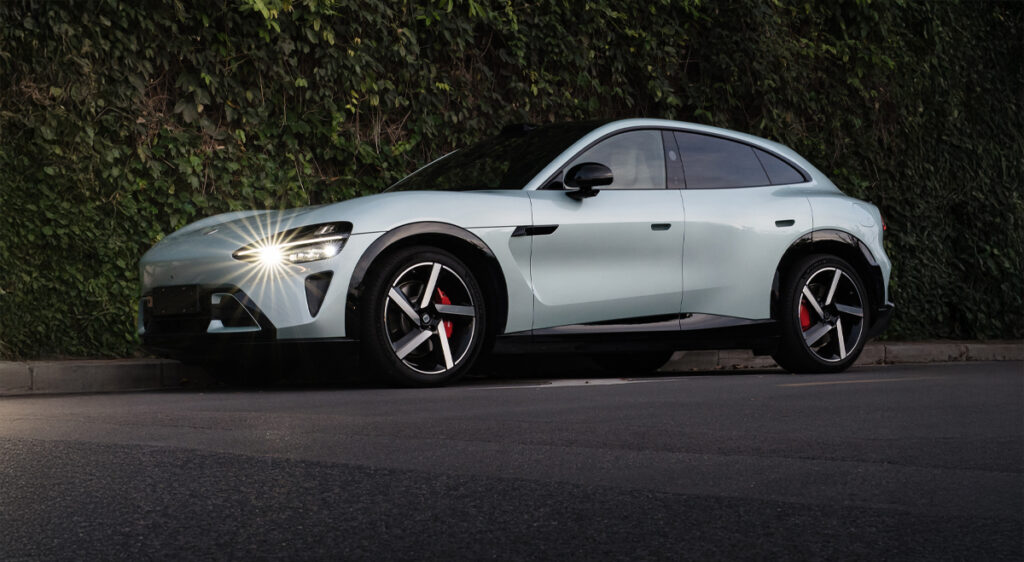
 Emir Bardakçı
Emir Bardakçı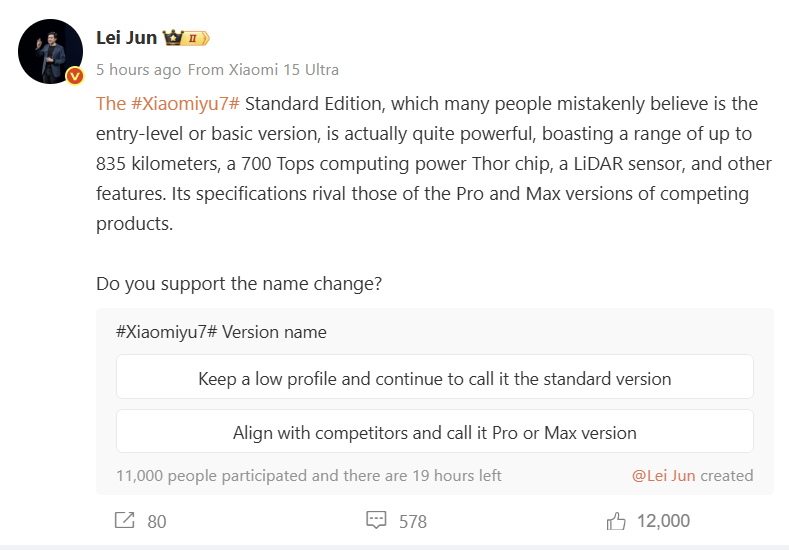
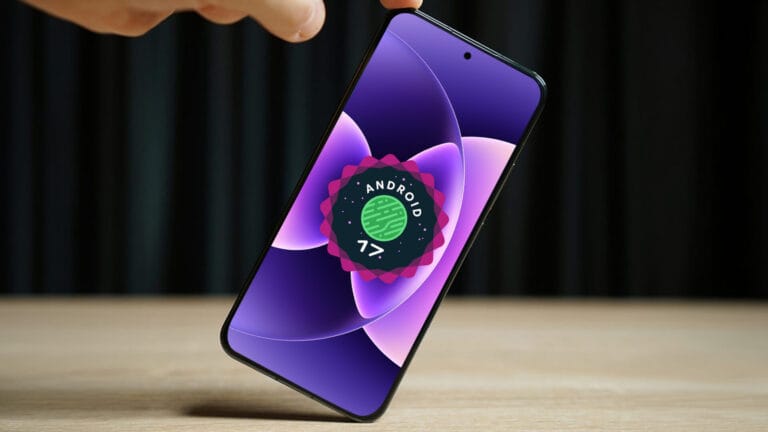
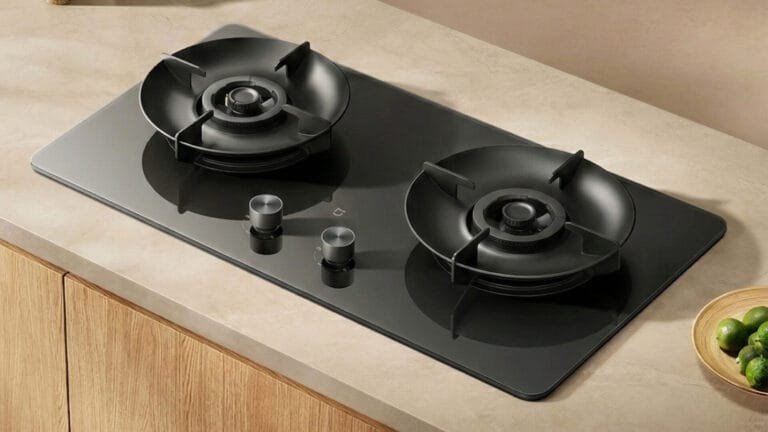
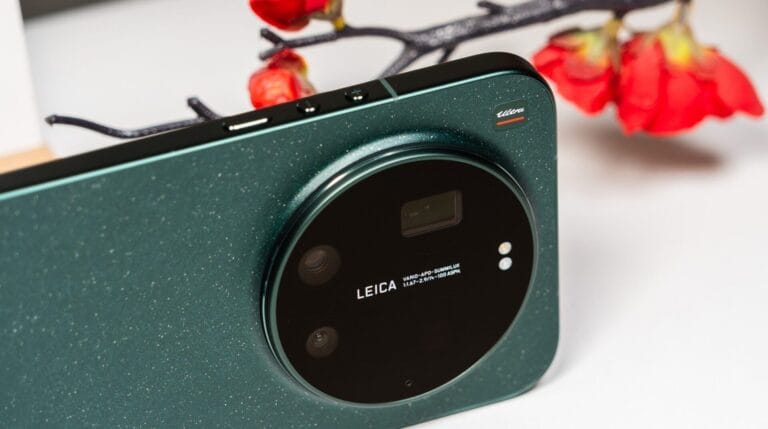
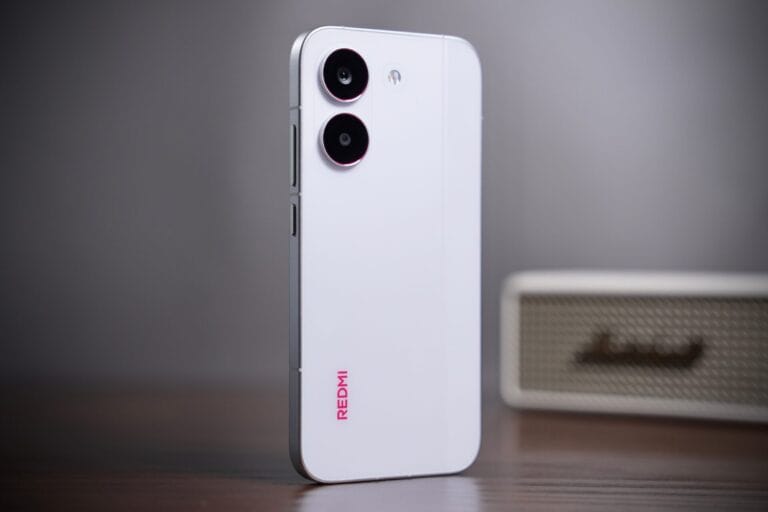
With all due respect to Mr. Lei, he should not have asked customers. Sure, some people say, “Give the customers what they want.” But a company with a true vision should figure out what its customers are going to want before they do. Henry Ford once said, “If I’d asked customers what they wanted, they would have told me: ‘A faster horse’!” People don’t know what they really want until you show it to them. That’s why you should never rely on market research. Your task is to read things that are not yet on the page. Or copy others once the’ve figured out themselves 😉